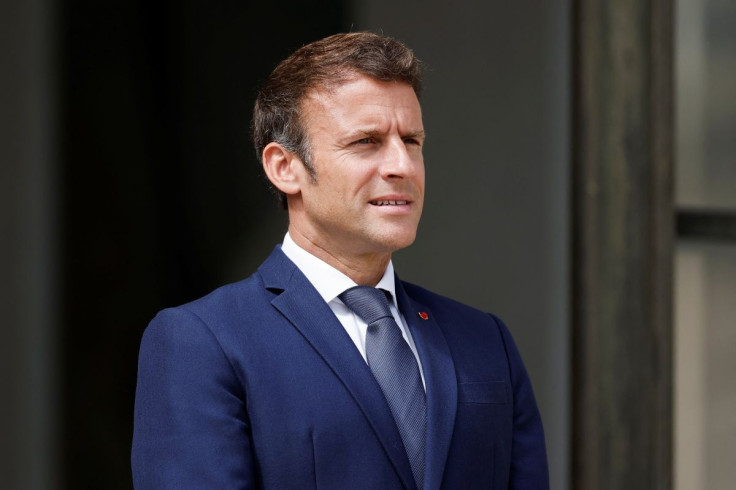Macron And Left-wing Bloc Neck And Neck In Polls In Battle For Parliament Majority

French President Emmanuel Macron and a new left-wing union were neck-and-neck in initial estimates of the first round of parliamentary elections, polls showed on Sunday, although it will remain hard to predict if he will get a majority or not.
Less than two months after re-election, Macron faces a strong challenge from a united left-wing bloc that polls show could deprive the president of an outright majority even if it does not take control of parliament.
An Ifop-Fiducial poll showed the so-called NUPES alliance of the left at 25.7%, while Macron's party and allies were seen getting 25% of the votes. Marine Le Pen's far-right scored 19.3% of the popular vote, the poll showed.
With the two-round system, which is applied to 577 constituencies across the country, the popular vote in the first round is not a good indication of who will eventually win a majority on June 19, when the second round is held.
Government insiders expected a relatively poor showing in Sunday's first round for Macron's coalition Ensemble, with record numbers of voters seen abstaining. Hard-left firebrand Jean-Luc Melenchon's bloc hopes to capitalise on anger over the rising cost of living.
"I voted for hope... so not for our current president," said Michel Giboz, 71, after voting for Melenchon's NUPES bloc at the poll station located in the 18th Parisian district's town hall.
Ivan Warren, who voted for Macron in the presidential election, wants to see him win a majority.
"It's important to me that we have a strong government, which allows us to represent France in the most effective way possible," the 56-year-old computer scientist said.
At risk is Macron's ability to pass his reform agenda, including a pension reform he says is essential to restore public finances. His opponents on the left are pushing to cut the pension age and launch a big spending drive.
"We expect a difficult first round. Voters will want to send a signal," a government source told Reuters. "But we're counting on the second round to show that Melenchon's programme is fantasy."
Voter turnout in mainland France (excluding overseas territories) at 1500 GMT came at 39.4%, the lowest seen in at least 20 years for a first round of parliamentary elections, according to interior ministry data. It was only 40.8% in the last election at this stage, however.
Initial projections after the presidential election showed Macron was on course to get a majority in parliament. But the president has kept a low profile since the vote, taking two weeks to form a government and only rarely making appearances.
Meanwhile, Melenchon has successfully forged an alliance between his France Unbowed movement, the Socialists, and the Greens.
Projections now show Macron and his allies, including the new party of his former prime minister Edouard Philippe, could fall short of a majority of 289 by as many as 40 seats.
Some 14 of Macron's ministers are competing in local races and could lose their jobs if they fail to win a seat.
One cabinet member most at risk is Clement Beaune, Macron's Europe minister, who is campaigning in an eastern Paris constituency. As a former adviser on matters such as Brexit, Beaune, 40, is a close ally of the president.
"That would be a painful loss," a government source said.
On the other side of the political spectrum, polls show far-right leader Marine Le Pen could win a seat in her northern constituency from the first round, by gaining over 50% of the votes.
© Copyright Thomson Reuters {{Year}}. All rights reserved.





















